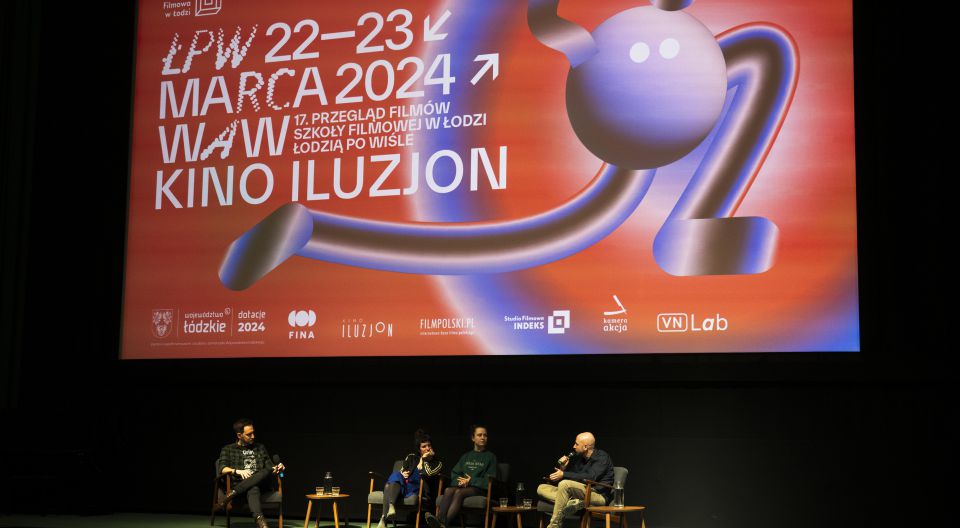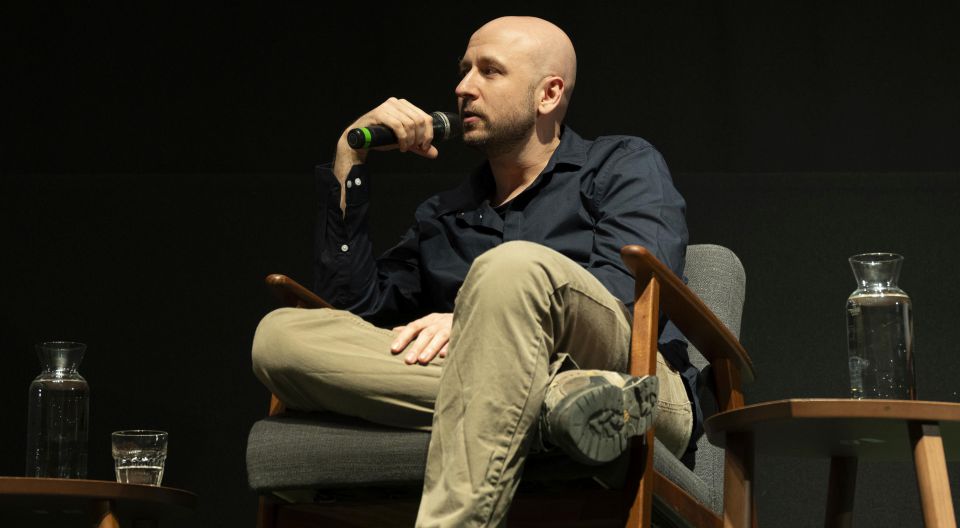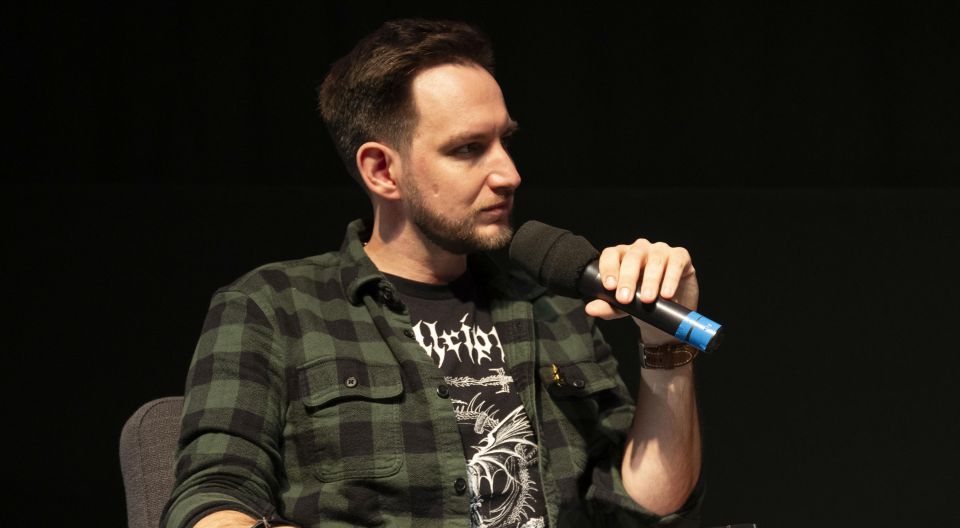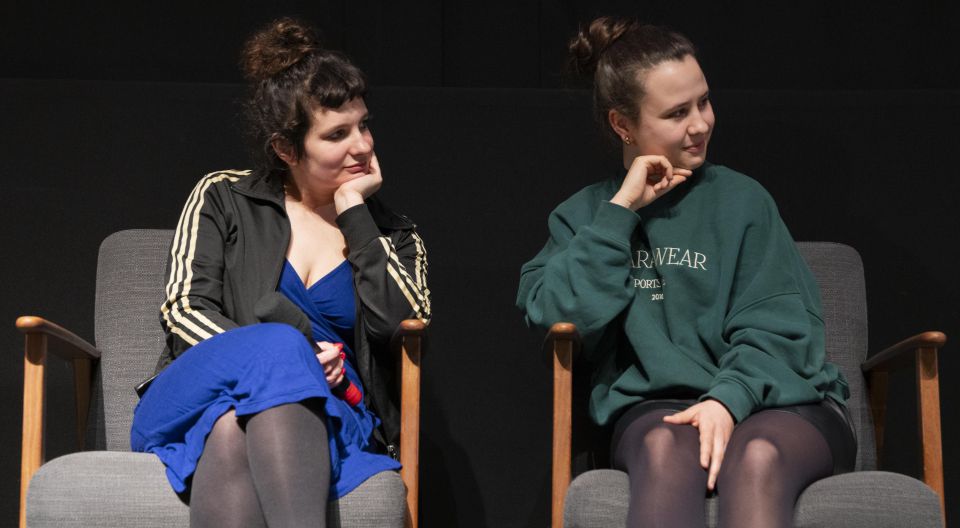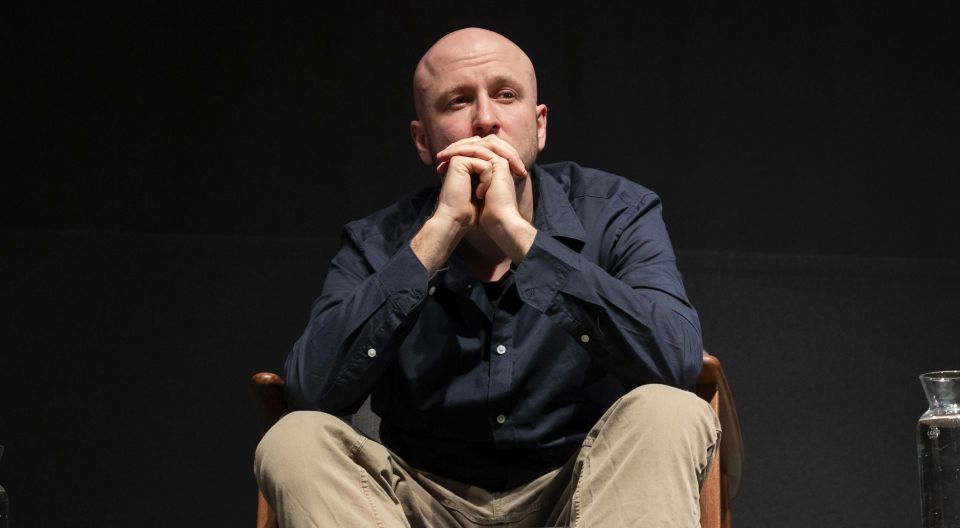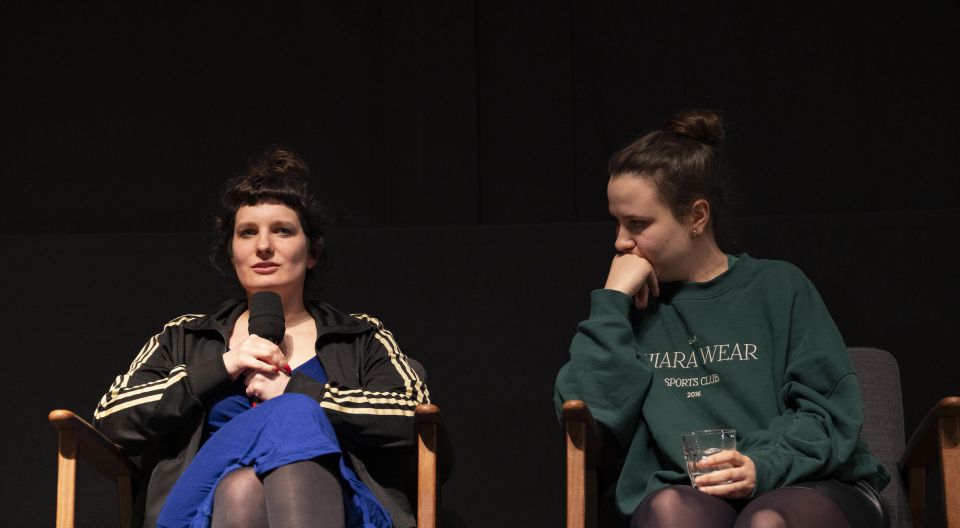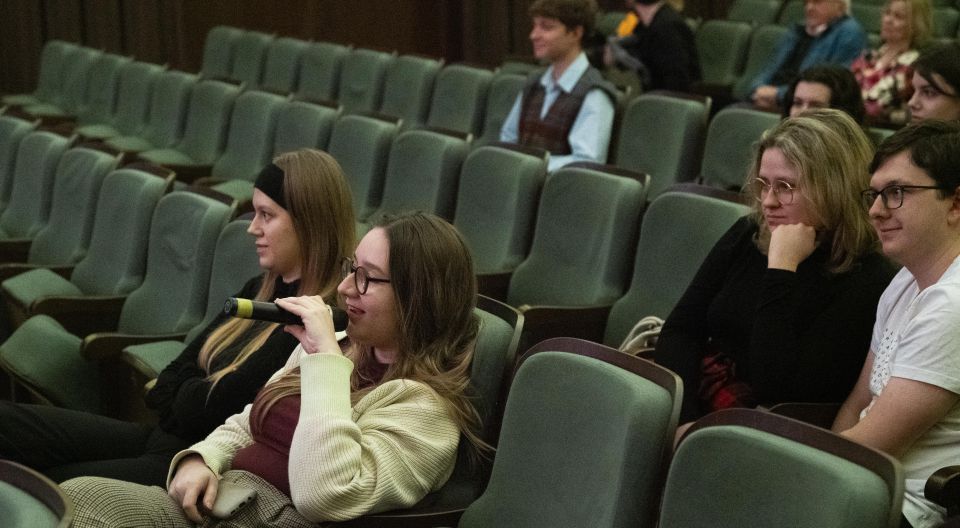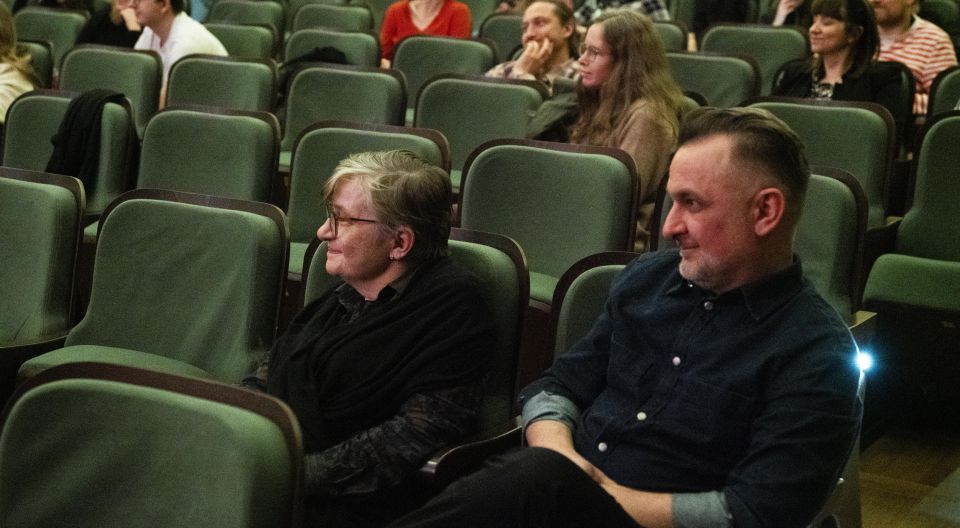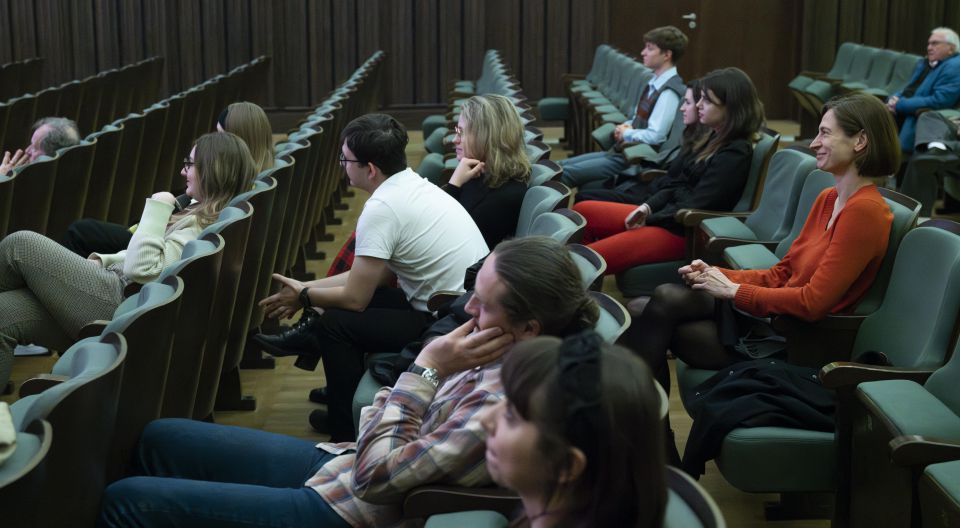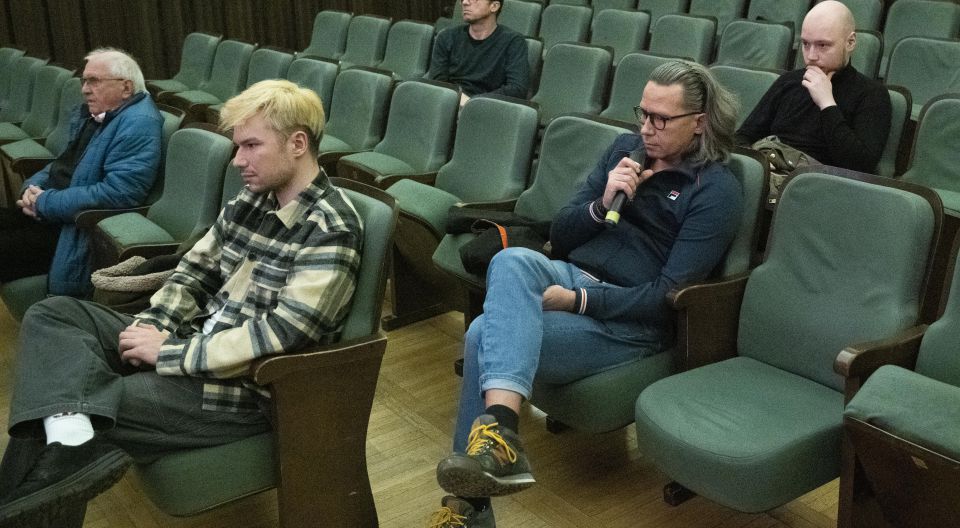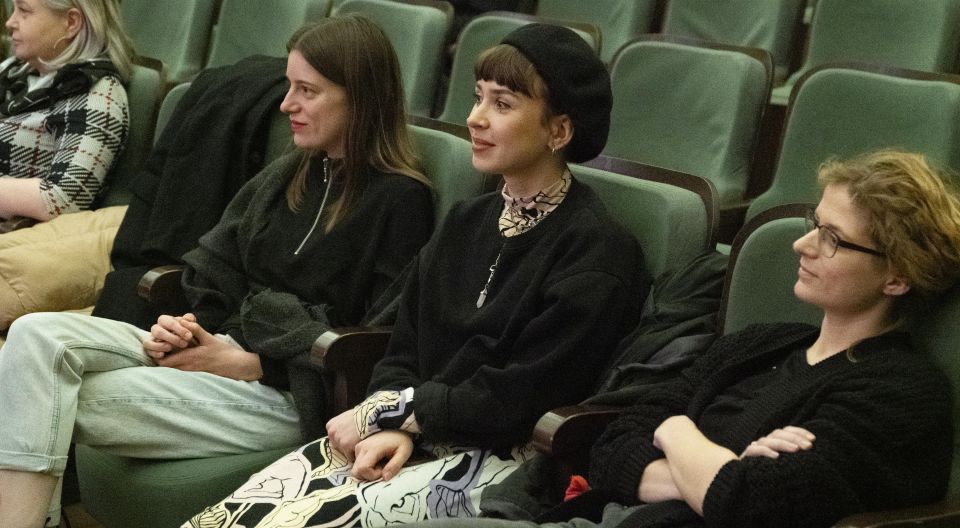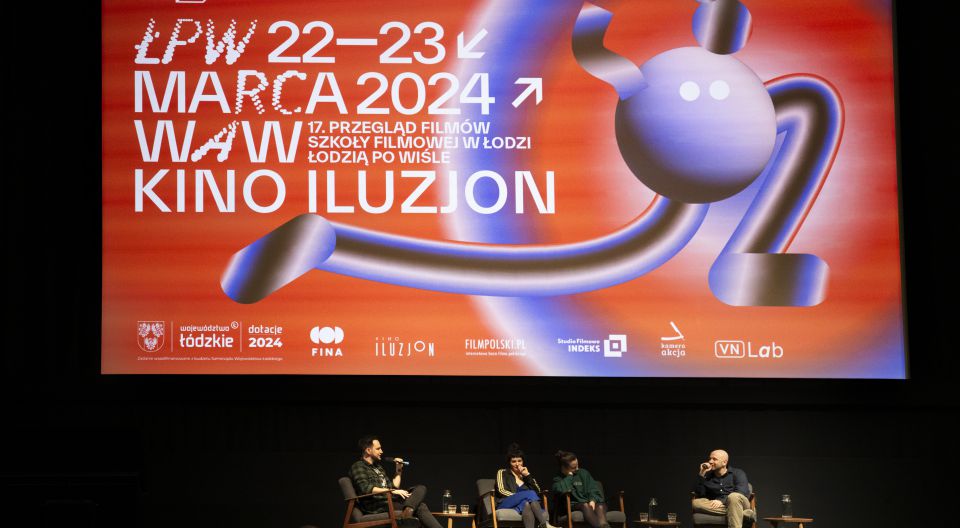23.
03.
2024.
Others
Others
"At every screening there is someone who says that life in the country doesn't look like this," said Grzegorz Dębowski, director of NEXT TO NOTHING, the opening film of the 17th "Łodzią po Wiśle".
True. Engaging. Rhythmic.
Let's follow the chronicle of events related to the film.
In September 2023, the feature debut film by Grzegorz Dębowski, a graduate of the Faculty of Film and TV Directing, won 6 awards at the 48th Polish Film Festival in Gdynia for Directorial Debut, Screenplay, Leading Actor, Supporting Actress, the Award in the Vision Apart category and Don Quixote Award of the Polish Federation of Discussion Film Clubs.
In December 2023, at a pre-premiere screening at the Film School Cinema with the participation of director and producer Jerzy Kapuściński, there was a full audience and a long discussion after the film. (read our report filmschool.lodz.pl/en/news).
At the beginning of March 2024, the director receives the EAGLE Polish Film Award in the Discovery of the Year category.
On March 8, '24, the film hits cinemas.
Finally, on 22 March, the screening of Grzegorz Dębowski’s student film Z ŻYCIA STRACHÓW POLNYCH and his debut film NEXT TO NOTHING will open the 17th ŁODZIĄ PO WIŚLE Lodz Film School Film Review.
After the screening, there was a meeting with the director, production manager and casting director, Agnieszka Skalska and editor and sound director, Anna Garncarczyk, led by Bolesław Racięski.
TRUE
In the film we see sensational acting roles created by theatre actors known from various TV series episodes.
Agnieszka: „We traveled to theatres all over Poland. (...) We saw only some of the theatre actors, and faced loads of talent there. The audition was a very interesting experience. Many of the actors who played in this film are from the Jaracza Theatre in Olsztyn”.
The work system that was in force during the making of the film and that the creators talked about was similar to working on a documentary film.
Agnieszka: „It was a documentary method - a small crew and contact with real people. We went to document several locations, which we did together with the cinematographer and the set designer; we went door to door and talked to farmers about their problems. We learned about their political views and after each documentation the text changed a little”.
In the film we see the countryside of Warmia and Mazury.
Grzegorz: „We shot in Warmia. We had a very nice cooperation with the regional fund. We chose Warmia because the process described in this film is still taking place there - farms are actually closing down to become agritourism. Most of the actors come from this area too.”
ENGAGING
As Bolek Racięski pointed out, the relevance of the topic tackled in the film cannot be ignored, because "some farmers are always protesting somewhere." However, the director avoided stereotyping and one-dimensional depiction of life in the country in Poland.
Grzegorz: „I wanted to take a social topic, but go towards psychology. For me this is not a film about life in the country”.
Agnieszka: „I think that Grzegorz's process of working on the film was interesting, because he is not from the country and knew very little about it. He got to know it during the process of writing the screenplay and through thorough work. It is this insight that has taken on a new and current meaning. The film will be universal, even if farmers will not be protesting about anything”.
RHYTHMIC
The film tells the story of the brotherhood of farmers put to the test.
The clash of ideals and reality. Morals versus systemic problems. Social group versus individual psychology.
The narrative method, woven from elements of socially engaged and psychological cinema, embedded in a genre structure, allows both to follow the investigation and contemplate the countryside.
Anna: „During filming, many master shots were created and the story unfolded itself. I actually disturbed this peace or prolonged it. We had the idea to make the first part dynamic and the second slow, so that the hero who enters the world of the country would lose himself more in it. So that viewers can follow him”.
Grzegorz: „We shot master shots because we had theatre actors who are used to acting in long scenes. (...) Whenever they could play a longer fragment, it helped everyone”.
Is this what country life looks like in Poland? This question requires an individual evaluation.
However, it can be safely said that this is what a successful directorial debut looks like - awarded at the festival, appreciated by journalists and well received by the festival audience.
As we invite you to the cinemas, we wish you our debuting filmmaker success with attendance.
ed. MLM
photos Benedykt Rogala
17th ŁODZIĄ PO WIŚLE Film School Film Review
PARTNERS:
National Film Archive - Audiovisual Institute
Iluzjon Cinema
Filmpolski.pl
Indeks Film Studio
vnLab Laboratory of Visual Narratives
Camera Action Festival
The task is co-financed from the budget of the Łódź Voivodeship Government.
Let's follow the chronicle of events related to the film.
In September 2023, the feature debut film by Grzegorz Dębowski, a graduate of the Faculty of Film and TV Directing, won 6 awards at the 48th Polish Film Festival in Gdynia for Directorial Debut, Screenplay, Leading Actor, Supporting Actress, the Award in the Vision Apart category and Don Quixote Award of the Polish Federation of Discussion Film Clubs.
In December 2023, at a pre-premiere screening at the Film School Cinema with the participation of director and producer Jerzy Kapuściński, there was a full audience and a long discussion after the film. (read our report filmschool.lodz.pl/en/news).
At the beginning of March 2024, the director receives the EAGLE Polish Film Award in the Discovery of the Year category.
On March 8, '24, the film hits cinemas.
Finally, on 22 March, the screening of Grzegorz Dębowski’s student film Z ŻYCIA STRACHÓW POLNYCH and his debut film NEXT TO NOTHING will open the 17th ŁODZIĄ PO WIŚLE Lodz Film School Film Review.
After the screening, there was a meeting with the director, production manager and casting director, Agnieszka Skalska and editor and sound director, Anna Garncarczyk, led by Bolesław Racięski.
TRUE
In the film we see sensational acting roles created by theatre actors known from various TV series episodes.
Grzegorz: „I did daily drama series for 4 years and after some time I focused on these episodic roles. It turned out that many great actors came to play a nurse or a policeman in two or three scenes. Thanks to that work I met people that are not known to the audience although they are wonderful artists. I dreamed that if I were to make a film, it would be with a cast like this".
Agnieszka: „We traveled to theatres all over Poland. (...) We saw only some of the theatre actors, and faced loads of talent there. The audition was a very interesting experience. Many of the actors who played in this film are from the Jaracza Theatre in Olsztyn”.
The work system that was in force during the making of the film and that the creators talked about was similar to working on a documentary film.
Agnieszka: „It was a documentary method - a small crew and contact with real people. We went to document several locations, which we did together with the cinematographer and the set designer; we went door to door and talked to farmers about their problems. We learned about their political views and after each documentation the text changed a little”.
In the film we see the countryside of Warmia and Mazury.
Grzegorz: „We shot in Warmia. We had a very nice cooperation with the regional fund. We chose Warmia because the process described in this film is still taking place there - farms are actually closing down to become agritourism. Most of the actors come from this area too.”
ENGAGING
As Bolek Racięski pointed out, the relevance of the topic tackled in the film cannot be ignored, because "some farmers are always protesting somewhere." However, the director avoided stereotyping and one-dimensional depiction of life in the country in Poland.
Grzegorz: „I wanted to take a social topic, but go towards psychology. For me this is not a film about life in the country”.
Agnieszka: „I think that Grzegorz's process of working on the film was interesting, because he is not from the country and knew very little about it. He got to know it during the process of writing the screenplay and through thorough work. It is this insight that has taken on a new and current meaning. The film will be universal, even if farmers will not be protesting about anything”.
RHYTHMIC
The film tells the story of the brotherhood of farmers put to the test.
The clash of ideals and reality. Morals versus systemic problems. Social group versus individual psychology.
The narrative method, woven from elements of socially engaged and psychological cinema, embedded in a genre structure, allows both to follow the investigation and contemplate the countryside.
Anna: „During filming, many master shots were created and the story unfolded itself. I actually disturbed this peace or prolonged it. We had the idea to make the first part dynamic and the second slow, so that the hero who enters the world of the country would lose himself more in it. So that viewers can follow him”.
Grzegorz: „We shot master shots because we had theatre actors who are used to acting in long scenes. (...) Whenever they could play a longer fragment, it helped everyone”.
Is this what country life looks like in Poland? This question requires an individual evaluation.
However, it can be safely said that this is what a successful directorial debut looks like - awarded at the festival, appreciated by journalists and well received by the festival audience.
As we invite you to the cinemas, we wish you our debuting filmmaker success with attendance.
ed. MLM
photos Benedykt Rogala
17th ŁODZIĄ PO WIŚLE Film School Film Review
PARTNERS:
National Film Archive - Audiovisual Institute
Iluzjon Cinema
Filmpolski.pl
Indeks Film Studio
vnLab Laboratory of Visual Narratives
Camera Action Festival
The task is co-financed from the budget of the Łódź Voivodeship Government.
